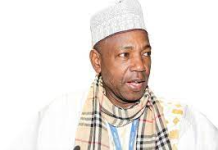Biran Gaye
The Centre for Research and Policy Development (CRPD) Gambia, a non-governmental organization and democracy advocate, in partnership with the Westminster Foundation for Democracy (WFD), said the cost of parliamentary politics in the Gambia, is driven by patronage.
The Centre made this disclosure in their October 2020 Report, which featured on the cost of parliamentary politics in the Gambia.
According to the report, the dawn of the new dispensation brought about a more equal and competitive playing field orchestrating a rise in the cost associated with running for office, and this accords much room to leverage their right to contest equally with the ruling parties.
On the culture of transactional politics, the report noted that the current transactional approach to politics condones and promotes a culture of patronage.
“Except for PDOIS, a party that has engaged more in creating civic consciousness and promoting a participatory political culture, most of The Gambia’s political parties are primarily focused on the mass mobilisation of voters during elections.”
“When a National Assembly member does work within their mandate, it is not seen as them doing what they should do, but as doing their constituents a favour, and one that is in return.
“The Gambia suffers from an inherent lack of organisational party structures. Incumbent political parties have historically been sustained by their access to state resources. But their structural weaknesses have been exposed immediately after they vacate political power,” the report said.
The report further revealed that pursuing a political career in The Gambia can be financially intensive, attributing the cost of running for a National Assembly seat in The Gambia to patronage networks and constituent expectations that extend to a candidate’s time in office.
This the report underscored, has implications over the participation of women and young people who are excluded from the process, due to their lack of access to funds or financial backers.
It also added that the increase in cost may also lead to a situation where electioneering become money-dominated which remains a concern as The Gambia seeks to rebuild credible democratic institutions after more than two decades of dictatorship.
“For the most part, partisan politics in The Gambia is not driven by issues or ideological leaning, but by political favours exchanged between voters and candidates, with increasing cost implications. The report indicates that the relationship between parties and voters must be redefined to make voting based on merit. That this will require continuing civic education on the roles and responsibilities of political parties; parliamentarians and the state. This trend as explained in the report, is largely driven by The Gambia’s perpetual dominant party state since independence, and needs to be unraveled, if multi-party democracy is to become a contest of ideas and not just financial muscle flexing,” the report disclosed.
“To exhibit the unequivocal advantage of its predecessors, campaign finance legislation should be introduced to ensure a clear separation between state and ruling party, to avoid diverting state resources for the latter’s political gains,” the report concludes.





















